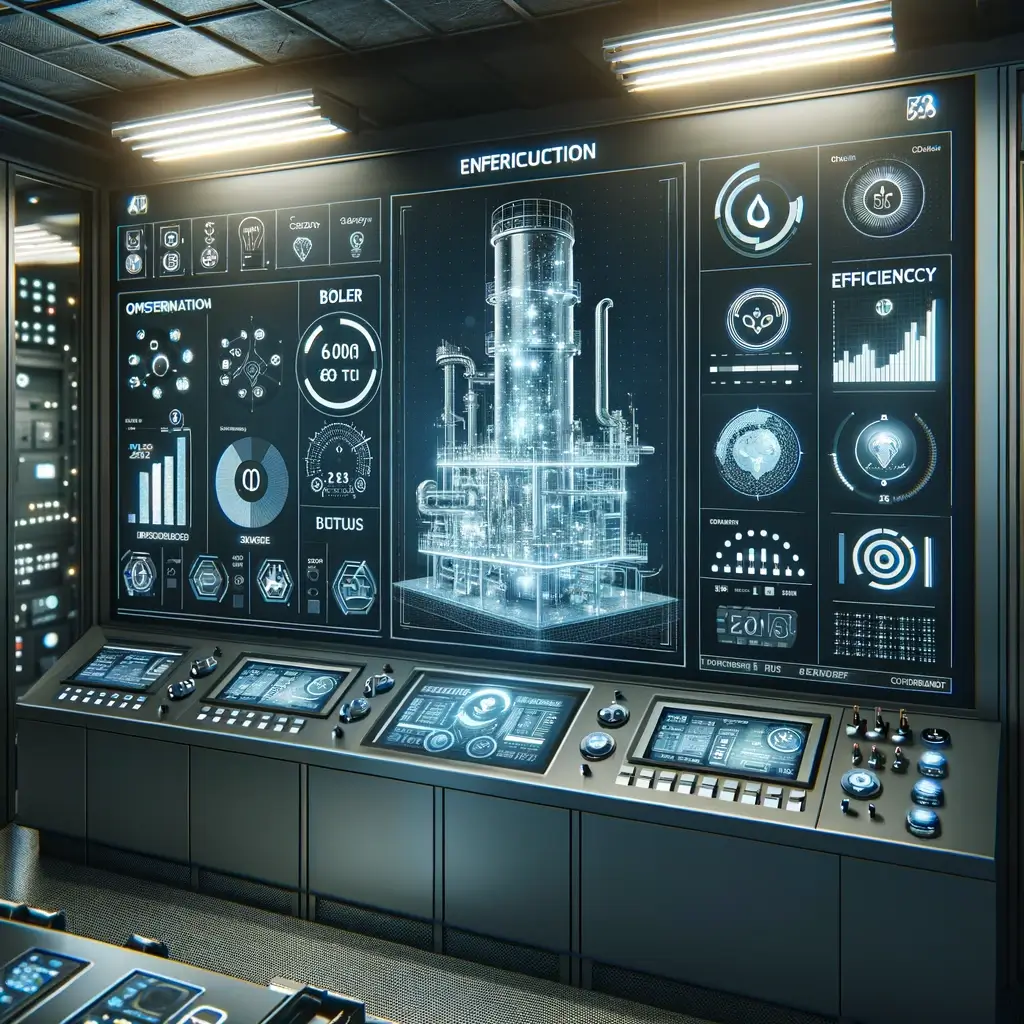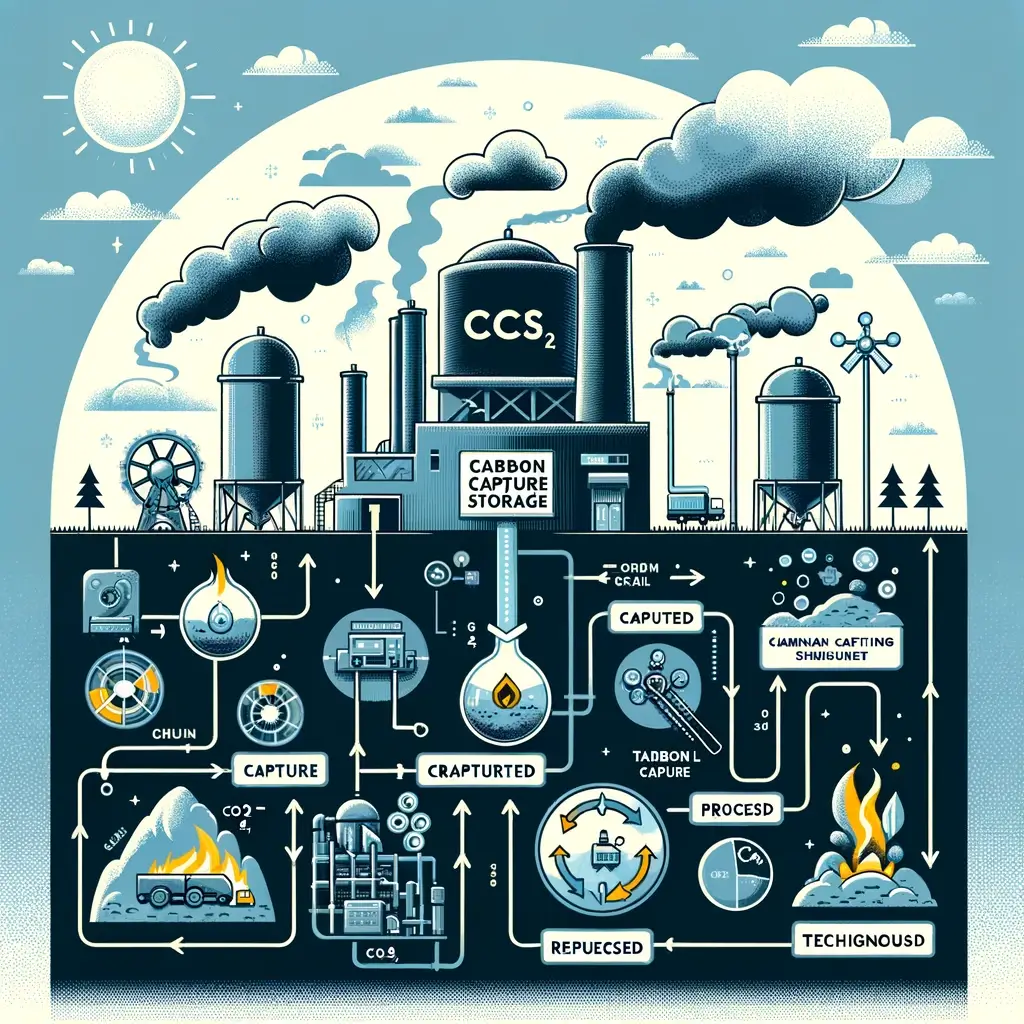Transitioning to carbon-neutral operations with a focus on using a biomass boiler is essential for sustainable heating solutions, far surpassing the efficiency of a gas boiler.
Biomass Boilers play a vital role in providing heat for various applications, but their carbon emissions contribute significantly to climate change. Transitioning boilers to carbon-neutral operations is crucial.
What Are Biomass Boilers?
Biomass boilers are heating systems that use organic materials, such as wood pellets, wood chips, or agricultural waste, to generate heat and hot water for buildings.
These renewable energy sources are considered carbon-neutral, as the carbon dioxide emissions released during combustion are roughly equal to the amount absorbed by the plants during their growth.
Biomass boilers are becoming increasingly popular as a sustainable heating option, providing an eco-friendly alternative to traditional fossil fuel boilers.
They can be used in both residential and commercial settings, offering a cost-effective and environmentally friendly way to heat properties.
Biomass Boiler Efficiency
By implementing a combination of renewable energy sources, energy efficiency improvements, and carbon capture technologies, we can pave the way for sustainable heating solutions with an innovative biomass boiler system.
- Renewable energy sources
- Energy efficiency improvements
- Carbon capture technologies
One key component of this approach is using biomass boilers, which have shown to be a highly efficient and cost-effective way to heat buildings. Biomass boilers use organic materials such as wood chips, straw, or other agricultural waste to produce heat and hot water.
The efficiency of a biomass boiler is measured by its ability to convert the energy in the fuel into usable heat. This efficiency can be improved through proper maintenance, regular servicing, and using high-quality fuel.

Additionally, modern biomass boilers often come equipped with advanced controls and monitoring systems to optimize performance and minimize energy waste, making them superior to traditional gas boiler systems.
By maximizing the efficiency of biomass boilers, we can reduce greenhouse gas emissions and reliance on fossil fuels, while also supporting local economies by utilizing locally sourced fuels.
With careful planning and investment in biomass boiler technology, we can create a more sustainable and environmentally friendly future for heating systems.
Renewable Energy Sources
One key approach to achieving carbon neutrality in Biomass boilers is by integrating renewable energy sources like a biomass power plant or a domestic biomass boiler. These sources include solar power, wind power, hydropower, and geothermal energy.
By integrating these renewable energy sources into biomass boilers, carbon emissions can be significantly reduced, ultimately helping to achieve carbon neutrality within the biomass boiler system.
Additionally, these renewable energy sources are environmentally friendly and sustainable, making them a key component in transitioning to a more sustainable energy system.
Transitioning from fossil fuels to biomass
Such as wood pellets, rice husk, or agricultural waste, enables the utilization of sustainable and carbon-neutral fuel options in a domestic biomass boiler.
Renewable energy sources such as solar power, wind power, and hydropower also play a crucial role in achieving carbon neutrality in biomass boilers.
By combining these renewable energy sources with biomass as a fuel option, we can reduce greenhouse gas emissions and move towards a more sustainable energy future.
Additionally, the integration of energy storage systems will help ensure a reliable and efficient energy supply from these renewable sources, further enhancing the benefits of transitioning to biomass boilers.
Overall, by embracing a combination of renewable energy sources and biomass fuels, we can work towards a cleaner and more environmentally friendly heat and power system.
Energy Efficiency Enhancements
Improving energy efficiency is another critical aspect of making Biomass boilers carbon neutral.
Implementing advanced control systems, optimizing combustion processes, and utilizing heat recovery technologies can enhance the overall efficiency of boiler operations.
Insulating boiler components, pipes, and ducts minimizes heat loss, ensuring maximum utilization of energy within the biomass boiler system.
Upgrading to high-efficiency burners and heat exchangers further reduces fuel consumption and associated emissions in a biomass boiler system.
These efficiency enhancements not only lower the carbon footprint of Biomass boilers but also lead to cost savings and improved performance.
Carbon Capture Technologies For Biomass Boilers
Carbon capture and storage technologies play a crucial role in achieving carbon neutrality in boilers. By capturing and storing carbon dioxide (CO2) emissions produced during combustion of biomass, we can prevent their release into the atmosphere.
Post-combustion CCS involves capturing CO2 from flue gases and storing it underground or utilizing it in industrial processes.
Implementing CCS in combination with renewable energy integration and energy efficiency measures can enable boilers to operate with minimal or even zero net carbon emissions, providing a pathway to carbon neutrality.
Biomass Boiler Efficiency

Transitioning boilers to carbon-neutral operations is essential for sustainable heating solutions, particularly with the use of a pellet boiler.
By integrating renewable energy sources, enhancing energy efficiency, and implementing carbon capture technologies, we can significantly reduce the carbon footprint of boilers, mitigating their contribution to climate change and fostering a more sustainable future.
NIIFT
At NIIFT, we understand the importance of energy efficiency and are dedicated to helping businesses reduce their energy consumption and costs.
We specialize in retrofitting steam boilers and have a team of experts who can help you determine the best energy-efficient components for your specific needs.
Whether you’re looking to upgrade your control system, replace your burner, or install new insulation in your boiler model, we can help you achieve your goals.

Please feel free to contact us. We will get back to you with 1-2 business days. Or just call us now.
Don’t let high energy costs hold your business back. Contact NIIFT today to learn more about how retrofitting your boiler system can help you save money and reduce your environmental impact.
Let us help you upgrade your boilers and take the first step towards a more energy-efficient future.
Frequently asked questions
Q: What is a biomass boiler?
A: A biomass boiler is a heating system that uses organic materials like wood chips, wood pellets, or logs to provide heat and hot water for a building.
Q: How does a biomass boiler work?
A: A biomass boiler operates by burning biomass fuel in a combustion chamber, which then heats up water to produce hot water or steam for heating purposes, similar to how a gas boiler functions.
Q: What are the benefits of using a biomass boiler?
A: Biomass boilers are eco-friendly as they use renewable energy sources, have lower carbon emissions compared to fossil fuels, and can help reduce costs in the long run.
Q: What types of biomass can be used in a biomass boiler?
A: Biomass boilers can use a variety of organic materials such as wood chips, wood pellets, logs, or other solid fuels as their primary source of fuel in a well-designed pellet boiler.
Q: How efficient are biomass boilers compared to traditional gas or oil boilers?
A: Biomass boilers are known for their high efficiency, often surpassing the efficiency of gas or oil boilers, making them a more sustainable heating option.
Q: What should I consider before installing a biomass boiler?
A: Before installing a biomass boiler, you should consider the availability of biomass fuel sources in your area, the size and heating capacity needed for your property, and any local regulations or incentives for using biomass heating systems.
